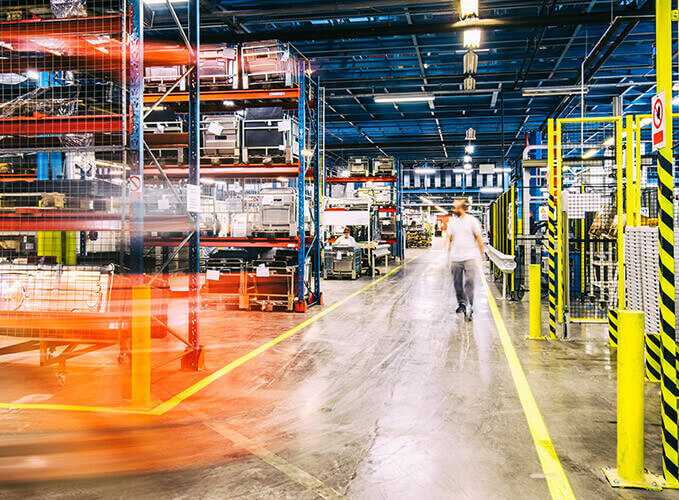Revolutionizing Urban Mobility: The Rise of the Electric Scooter Battery
In recent years, cities around the world have been witnessing a remarkable transformation in urban mobility with the introduction of electric scooters. These compact and environmentally friendly vehicles have gained immense popularity as an alternative mode of transportation. Central to the success of electric scooters is the lithium-ion battery, which has revolutionized the way we think about urban mobility.
The rise of the electric scooter can be attributed to several factors. Firstly, the increased emphasis on sustainable transportation has led to a growing demand for eco-friendly alternatives to traditional vehicles. Electric scooters offer a viable solution, as they produce zero emissions and have a significantly lower carbon footprint compared to cars or motorcycles. This makes them an attractive option for individuals looking to reduce their impact on the environment.
Additionally, the compact size and maneuverability of electric scooters make them ideal for navigating crowded urban areas. With the growing problem of traffic congestion in many cities, electric scooters provide a practical solution by allowing riders to easily weave in and out of traffic and reach their destinations faster. Furthermore, the cost of ownership and maintenance of an electric scooter is considerably lower than that of a car, making it an affordable option for many city dwellers.
At the heart of the electric scooter revolution lies the lithium-ion battery. These rechargeable batteries have transformed the way we power our vehicles, offering a more sustainable and efficient alternative to traditional fuel sources. The use of lithium-ion batteries in electric scooters has several advantages. Firstly, they have a high energy density, meaning they can store a large amount of energy in a compact form. This allows electric scooters to travel longer distances on a single charge, making them a practical choice for daily commuting.
Moreover, lithium-ion batteries have a longer lifespan compared to other battery technologies, such as lead-acid or nickel-cadmium batteries. This means that electric scooter owners can enjoy years of reliable use before needing to replace the battery. Additionally, the lightweight nature of lithium-ion batteries makes them well-suited for electric scooters, as they do not add unnecessary weight to the vehicle, allowing for better handling and maneuverability.
The charging infrastructure for electric scooters has also improved significantly in recent years. Many cities have introduced dedicated charging stations or docking stations where riders can conveniently charge their scooters. Additionally, advancements in technology have led to the development of portable chargers, allowing riders to recharge their batteries on the go. This makes electric scooters a practical choice for individuals who may not have access to a dedicated charging station at home or work.
Despite the numerous benefits of electric scooters and their lithium-ion batteries, there are still challenges that need to be addressed. One of the main concerns is the limited range of electric scooters on a single charge. While advancements in battery technology have increased the range of electric scooters, it is still not comparable to the range of traditional vehicles. This poses a challenge for individuals who need to travel longer distances or rely on their scooter for extended periods of time.

Another challenge is the issue of battery disposal and recycling. While lithium-ion batteries are more environmentally friendly than lead-acid or nickel-cadmium batteries, they still require proper disposal to prevent environmental contamination. As the popularity of electric scooters continues to grow, it is crucial to develop efficient and sustainable methods for battery recycling to minimize the environmental impact.
In conclusion, the rise of the electric scooter and its lithium-ion battery has revolutionized urban mobility. These eco-friendly vehicles offer a sustainable and practical alternative to traditional transportation methods. With advancements in battery technology and charging infrastructure, electric scooters are becoming an increasingly viable option for daily commuting. However, challenges such as limited range and battery disposal need to be addressed to ensure the long-term sustainability of electric scooters as a mode of urban transportation.
-
 Looking for a high-performance motorcycle battery that will take your ride to the next level? Look no further than LiFePO4 batteries. These powerful batteries are designed to provide superior performance and reliability, making them the perfect choice for demanding riders who demand the best. At the heart of every LiFePO4 motorcycle battery is advanced lithium iron phosphate technology. This...Read more
Looking for a high-performance motorcycle battery that will take your ride to the next level? Look no further than LiFePO4 batteries. These powerful batteries are designed to provide superior performance and reliability, making them the perfect choice for demanding riders who demand the best. At the heart of every LiFePO4 motorcycle battery is advanced lithium iron phosphate technology. This...Read more -
 Lithium Iron Phosphate (LiFePO4) is a type of lithium-ion battery that has been in use since the year 1996. It has rapidly gained popularity in the recent years due to its exceptional features and benefits that sets it apart from other types of lithium-ion batteries available on the market. In this report, we will take an in-depth look at the...Read more
Lithium Iron Phosphate (LiFePO4) is a type of lithium-ion battery that has been in use since the year 1996. It has rapidly gained popularity in the recent years due to its exceptional features and benefits that sets it apart from other types of lithium-ion batteries available on the market. In this report, we will take an in-depth look at the...Read more -
 Introduction: Renewable energy sources, such as solar and wind power, have gained significant traction in recent years as the world seeks cleaner and more sustainable alternatives to traditional energy sources. However, their widespread adoption has been hindered by the intermittent nature of these sources and the lack of efficient energy storage systems. One promising solution to this challenge is...Read more
Introduction: Renewable energy sources, such as solar and wind power, have gained significant traction in recent years as the world seeks cleaner and more sustainable alternatives to traditional energy sources. However, their widespread adoption has been hindered by the intermittent nature of these sources and the lack of efficient energy storage systems. One promising solution to this challenge is...Read more -
 Lithium-ion batteries have taken the world by storm, and for good reason. They are highly efficient, have a long lifespan, and can pack a lot of power in a small package. One of the most popular types of lithium-ion batteries is the LiFePO4 battery. This type of battery is incredibly popular in a variety of applications because of its long...Read more
Lithium-ion batteries have taken the world by storm, and for good reason. They are highly efficient, have a long lifespan, and can pack a lot of power in a small package. One of the most popular types of lithium-ion batteries is the LiFePO4 battery. This type of battery is incredibly popular in a variety of applications because of its long...Read more -
 The 100Ah 12V LiFePO4 battery is a highly efficient and long-lasting power solution that has been gaining popularity in various industries. This battery is made of Lithium Iron Phosphate, or LiFePO4, which is known for its stability, safety, and durability. One of the main advantages of the 100Ah 12V LiFePO4 battery is its high energy density. This means that...Read more
The 100Ah 12V LiFePO4 battery is a highly efficient and long-lasting power solution that has been gaining popularity in various industries. This battery is made of Lithium Iron Phosphate, or LiFePO4, which is known for its stability, safety, and durability. One of the main advantages of the 100Ah 12V LiFePO4 battery is its high energy density. This means that...Read more -
 Are you an avid boater or sailor who loves to embark on exciting marine adventures? If so, you understand the importance of having reliable and powerful equipment to ensure uninterrupted experiences on the water. One crucial component that can make or break your adventures is the marine starting battery. This article will delve into the significance of a marine starting...Read more
Are you an avid boater or sailor who loves to embark on exciting marine adventures? If so, you understand the importance of having reliable and powerful equipment to ensure uninterrupted experiences on the water. One crucial component that can make or break your adventures is the marine starting battery. This article will delve into the significance of a marine starting...Read more -
 As a vehicle owner, one of the most frustrating issues you may encounter is a dead starter battery. Not only can this prevent you from starting your car, but it can also be a costly problem to fix. Fortunately, there are several steps you can take to prevent your starter battery from discharging. In this article, we\'ll discuss some of...Read more
As a vehicle owner, one of the most frustrating issues you may encounter is a dead starter battery. Not only can this prevent you from starting your car, but it can also be a costly problem to fix. Fortunately, there are several steps you can take to prevent your starter battery from discharging. In this article, we\'ll discuss some of...Read more

